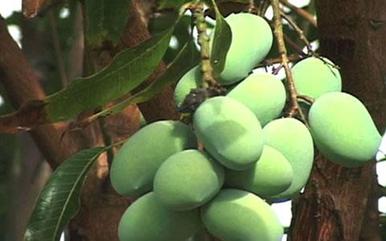
This is the VOA Special English Agriculture Report.
Seth DeBolt is a plant scientist at the University of Kentucky in the United States. He and other scientists wanted to find a source of fuel that poor people in rural areas of developing countries could use to make electricity.
The United Nations Development Program says a billion and a half people have no electricity. A billion others have an undependable supply.
Professor DeBolt went on a study trip to rural Indonesia. He saw that, everywhere he went, there was very little waste in the use of agricultural products. Everything that farmers grew was used for something. Even the remains of fruit that people did not eat were fed to chickens.
Little waste meant there was little that could be used for fuel. Growing a separate fuel crop would take land away from food crops. That was something Professor DeBolt did not want to do.
SETH DeBOLT: "The people at most risk with respect to energy poverty, typically they're the same people who have food insecurity issues as it is. And then any change in availability would be most detrimental to that group of people."
But he found two items that were in plentiful supply and would not create competition between food and fuel. Coconut shells and mango pits are generally thrown out. Yet Professor DeBolt says they have a lot of energy stored in them. He says they have an "excellent" heating value which he compares to coal of low to moderate grade.
The same is true for the pit of an olive, peach or cherry, or the shell of an almond or walnut. All someone needs is a way to release that energy.
Seth DeBolt says a company in India, Husk Power Systems, is using small generators in villages to make electricity from rice hulls. The process used is called gasification. Heating plant matter in a low-oxygen chamber releases gases. These can be burned in an engine that turns a power-generating turbine.
Professor DeBolt says he and his team see possibilities for coconut and mango power.
SETH DeBOLT: "Hey, well these crops are growing here and these are the areas where there is potential for energy poverty to be alleviated at least in part by these small-scale production systems."
The researchers have just published a study in the Proceedings of the National Academy of Sciences. They say these systems could provide as much as 13 percent of the energy needs of a country like Indonesia. Other tropical countries with large crops of coconuts, mangoes and similar fruit could benefit, as well.
But Professor DeBolt says this is not a perfect solution. There are technical questions, like how to safely deal with the hazardous waste that gasification can produce. And there needs to be money to get these projects started.
And that's the VOA Special English Agriculture Report. I'm Jim Tedder.
detrimental: 不利的;有害的
coconut shells: 椰子壳
mango pits: 芒果坑
gasification: 气化
turbine: 涡轮
Indonesia's 'technopreneurs' help fuel economic growth
Artificial leaf turns sunlight into electric power
Seattle to recycle food waste into electricity
(来源:VOA 编辑:Rosy)
